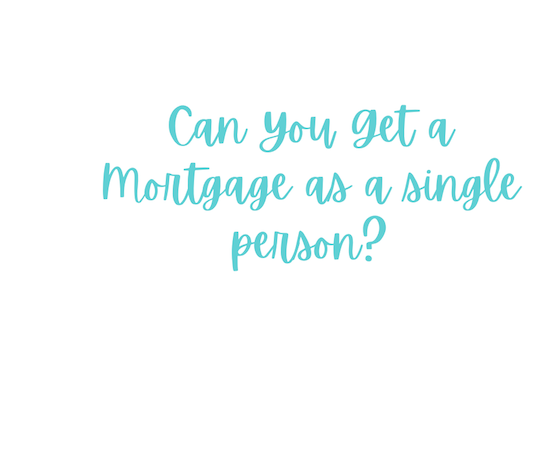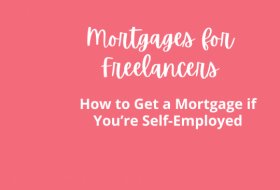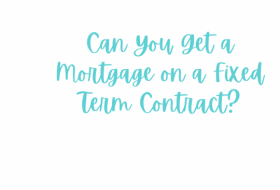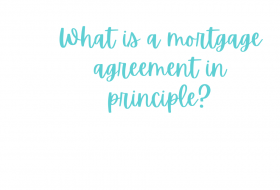Your journey into owning your own home can feel daunting. Possibly even more so if you’re looking to get a mortgage as a single person.
It can be worrying not knowing whether you’ll be able to afford to repay your mortgage if something unexpected happens in the future.
However, renting can feel like a waste of money and you may be keen to invest that money in your future instead.
Or perhaps you’re in shared accommodation and are desperate for your own space? Or if you’re recently separated, you might be looking for financial security for yourself and even your family.
With so many different groups of people looking to buy their first home on their own, the most important first question is often: ’Is it possible?’
To answer your question, yes you can get a mortgage as a single person. But it can be harder than for a couple, which we will explain in a minute. It helps to know what to expect so that you can prepare yourself properly. Read on for everything you need to know.
Is it Hard to Get a Mortgage on One Income?
A 2014-2015 housing survey revealed that just 14% of first-time buyers were single applicants. Twenty years before that, solo first-time buyers were around 29%, suggesting buying on your own is harder with just one income today. And salaries haven’t exactly grown in line with rising house prices, which doesn’t help.
While applying for a mortgage with two incomes may mean you can borrow more, it is still possible to get a mortgage on your own. It’s something we’ve helped lots of people with. We have a great team of specialist brokers and mortgage advisers who work with lenders that will consider single applicants.
Challenges to Buying a House as a Single Person
We understand there may be one or two challenges when it comes to buying a property on your own. Space might be a big consideration for you. If you have no dependents, you might be happier with a smaller property like a 1-bedroomed flat. However, perhaps you need to work from home due to restrictions caused by the pandemic and need extra space. Or maybe you have children and need additional bedrooms to accommodate everyone.
Another big issue, especially in some cities, is affordability. Being able to afford the house you want can be an ongoing challenge. Most lenders will only let you borrow so much to protect you from overstretching yourself.
When it comes to your income, some lenders will consider overtime and bonuses. They will also look at your outgoings, your financial history, and any future changes to your finances before working out what you can afford. If you are struggling to find out what you might be able to afford, speak to one of our expert mortgage advisers.
How Much Can I Borrow if it’s Just Me?
A common first step is to use a single person mortgage calculator to work out what you can afford to borrow. But, bear in mind that these are pretty generic so can only give a general idea. Typically, lenders offer 3-5 times your annual salary, with some offering up to 6 times what you earn per year.
Let’s give you a couple of examples based on 5x your salary and a 10% deposit:
| Salary | Borrowing Limit | House Price | 10% Deposit | House Price Less Deposit |
| £28,000 | £140,000 | £155,000 | £15,500 | £139,500 |
| £35,000 | £175,000 | £195,000 | £19,500 | £175,500 |
Bearing in mind the above is for illustrative purposes only, it gives you an idea of what you might be able to borrow. But this also depends on what you can afford as a monthly repayment, based on your existing commitments and living expenses.
For example, if you have existing credit card debt or loans, this can also impact how much you might be able to borrow. Your individual circumstances will affect the rates and range of mortgage available, so it’s best to speak to an expert who specialises in mortgages for single applicants.
Other Options Worth Considering
If you can’t afford to borrow much, or your financial history is affecting your chance to get a mortgage there are a couple of other options you could investigate.
- Getting a joint mortgage in sole name only. This is known as a Joint Borrower Sole Proprietor mortgage, where you would buy your home with the help of someone else like a family member. As their name isn’t on the title deeds, they have no claim over the property. All borrowers will need to meet the lending criteria. And if one of you is unable to meet the repayments, the other will be responsible for the debt.
- Getting a guarantor mortgage. This is where someone else (usually a family member) acts as a backup to repay your monthly mortgage repayments if you can’t. The downside to this is that they will likely have to use their own home as insurance if they are also unable to meet the repayments.
As well as mortgage options, there are other things you can do to help you get on the property ladder, which we’ll look at further down.
How Much Deposit Will I Need?
The average deposit in the UK for first-time buyers in the UK in 2020 was around £57,000. In comparison, the average property in the UK was valued at £269,945 in 2021. Bearing in mind these are average values, and that’s a deposit of about 20%.
Of course, the amount of deposit you might need depends on your personal circumstances. Like the size and the value of your ideal property, how much you can borrow, and what a lender will require. In an ideal world, the larger your deposit, the better, as this will increase the range of deals available to you (and reduce your monthly repayments). But we understand that things aren’t always ideal, and it’s reassuring to know there are other ways to achieve your dream of buying your home.
Some lenders will approve a mortgage for 95% of the property’s value, meaning you may only need a 5% deposit. You could also look at first-time buyer schemes such as Help to Buy, Shared Ownership, and the First Homes Scheme to help you get on the property ladder. We’ll cover those in more depth below.
Want to know now what you might be able to afford and how much deposit you might need? Book an appointment to speak to one of our mortgage advisers who specialise in one-person mortgages:
Struggling to Get on the Property Ladder – What You Can Do To Help
1. Build an emergency fund. As we mentioned at the beginning of the article, you might be concerned about what might happen if you can’t pay, or if something goes wrong in the property. An emergency fund is as its name suggests – a fund to help you in case of emergency. It will be separate from your deposit and is a great way to help you feel secure when you do buy your own home. Aim to save about 3 – 6 months’ worth of your take-home pay so that you have that financial cushion if needed.
2. Save as much as possible for your deposit. You can do this by cutting back on your outgoings and putting that money you would have spent in a special ‘deposit’ savings account. You could stop buying takeaways, take lunch to work, etc. Take a break from regular clothes shopping or try buying pre-loved clothes. Consider whether a family member might be able to help you get a mortgage with a gifted deposit.
3. Think about buying a property in a lower-priced area. Not all house prices are the same, and some areas are more expensive than others. Just a quick look on Rightmove will show you the difference between properties in one area near you, compared to another.
4. Look at your first purchase as a ‘stepping-stone’ property. You could buy a smaller house and live below your means. Then overpay your mortgage and save for the home you really want. Or buy a lower-priced property which needs work doing and renovate it while you are living there. Remember, it doesn’t have to be your forever home. Once you are on the property ladder you can keep climbing.
5. Once you’ve bought your house, you could rent out your spare room to help cover the cost of the mortgage and free up some of your own income.
6. First-time buyer schemes
a. Help to Buy: Equity Loan. This government-backed scheme is a great opportunity for first-time buyers to get on the property ladder. You will need a deposit of at least 5% of the purchase price, and the government will provide an equity loan for 20%. Your mortgage will then make up the remaining 75% of the purchase price. In London, the equity loan is 40%. So here, if you have a deposit of 5%, you will need a mortgage for the remaining 55%. Until the loan is repaid, the government owns the 20% (or 40%) as an equity share of the property. In this situation, you will need to be able to afford both the mortgage and the loan repayments. The Help to Buy: Equity Loan scheme may mean you can afford a higher-value property than you might normally. However, bear in mind that the scheme is only available on new builds. You might have to pay a new build premium, which means your home may lose value in the first few years. Unless you are planning to live there a while, it may not be the best investment for you even with the extra help from the government.
b. Shared Ownership. This is another affordable home ownership scheme from the UK government. You purchase a percentage of a property (usually around 25% – 75%) from a housing association and pay rent on the remaining percentage. Once you become the owner, you can then buy additional shares of 5% or more at any point. Because you are buying less of the property it means you can have a smaller deposit. This is helpful if you are struggling to save a large deposit on your own. To be eligible for shared ownership, you need to be earning less than £80,000. Read more about Shared Ownership here.
c. First Homes Scheme. Another government initiative launched in June 2021; this scheme provides first-time buyers a chance to purchase a new build home at a discounted price of at least 30%. In some areas, this could be as high as 50%. The property remains discounted forever so that the future owner can also benefit when you sell your property. As with Shared Ownership, your income must be below £80,000 (£90,000 in London) to be able to apply. Local authorities are encouraged to prioritise key worker applicants to help them buy their first home within their working area.
7. Consider buying with a friend or family member. You can buy a property with up to 4 other people and be jointly registered as co-owners. One of the biggest things to consider is how you will share the responsibilities of home ownership. There are legal agreements you can choose when buying with friends to help protect each other from the what if’s. For a group of friends, you would likely be looking at the ‘tenancy in common’ option to protect your share of the property regardless of what happens. However, each owner is fully responsible for the mortgage, so if one stops paying, the other owners will have to pay the full amount. Additionally, you would need to have an agreement in place for when one of you wants to move on. For example, someone may enter a relationship and wish to move on and buy elsewhere. This would involve drawing up a declaration of trust, confirming when and how the property can be sold. It can also include a required notice period, and the option of buying the share of the person who wishes to leave. You can read more about that here.
8. Look at other alternatives to buying. Yes, if getting the home you want is not an option and you are happy renting then you may want to look at what else you can do with your money. For example, if buying your first property is for investment reasons, you might want to get investment advice and see what other options are available to you. Alternatively, you could consider a Buy-to-Let property, rather than living in it yourself.
9. Get support with our FREE Getting Prepared – First-Time Buyer App. If you are worried about planning your finances and knowing your numbers then this can help you.
- Get help to check your finances
- Learn how mortgages work
- Get prepared to start house hunting
Get in the best possible position before applying by following the simple steps.
I’m Single and Self-Employed. Can I Still Get a Mortgage?
Yes! Your application is based on what you can afford. However, being self-employed or freelance when applying for a mortgage will likely bring up several other questions. We have a whole post written on this. Find out more here: Mortgages for Freelancers: How to Get a Mortgage if You’re Self-Employed.
What If I Have Bad Credit?
Working to improve your credit score and financial history will increase your chances of getting a mortgage. Your credit score is a snapshot of your financial history, and there are three credit reference agencies that lenders use to report all activity regarding your financial records. Moneysavingexpert.com is a great resource for finding out more about this.
Also, think about some of the options we’ve suggested above. Having someone act as guarantor may help, or one of the first homes schemes we’ve mentioned may be a better option for you. Even if you have bad credit, there are things you can do to improve that and there are lenders available who specialise in mortgages for people with a less than perfect financial history.
How To Buy a House as a Single Person – In Summary
As you can see, there are several options available to help you get on the property ladder. All you need is a plan! The first place to start is checking what you can afford, and then go from there. Arrange to speak to one of our mortgage advisers today if you are unsure about where you stand.
We want you to feel fully prepared and confident when it comes to buying your first home.
As we have mentioned in this article, that’s all about first knowing where you stand.
Buying your first home can be a confusing and daunting process. From knowing the steps involved and in which order, to working out how to get a mortgage.
To make your journey as smooth as possible, we have a free Getting Prepared – First-Time Buyer App for guidance to help you on your way to making your dream come true. Click the button below to learn more.
Your home may be repossessed if you do not keep up repayments on your mortgage.
There may be a fee for mortgage advice. The actual amount you pay will depend upon your circumstances.





